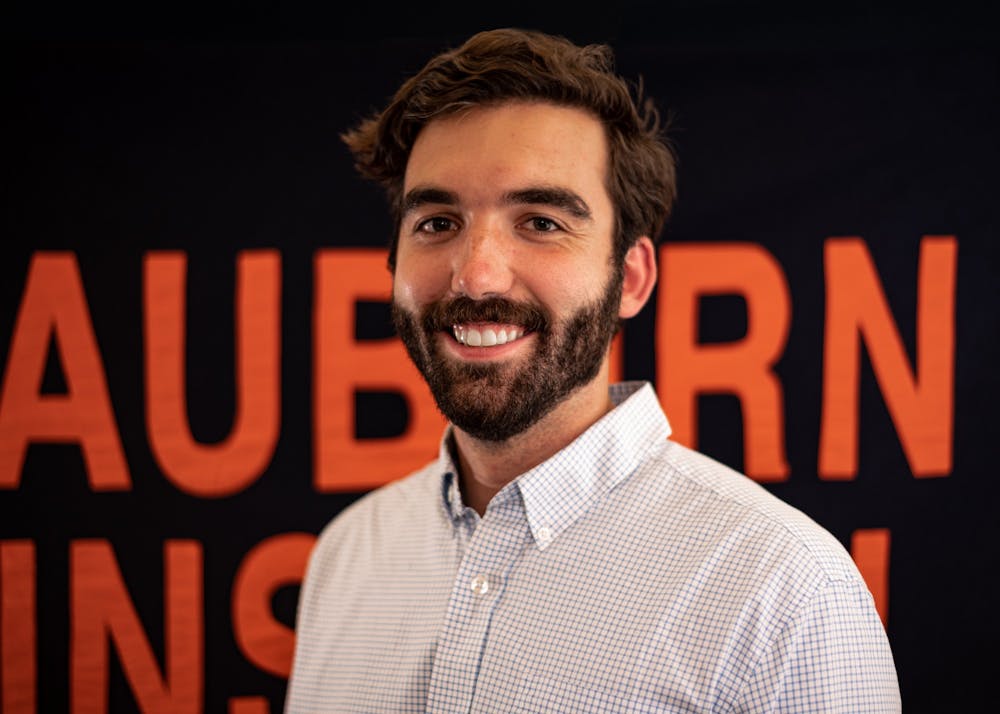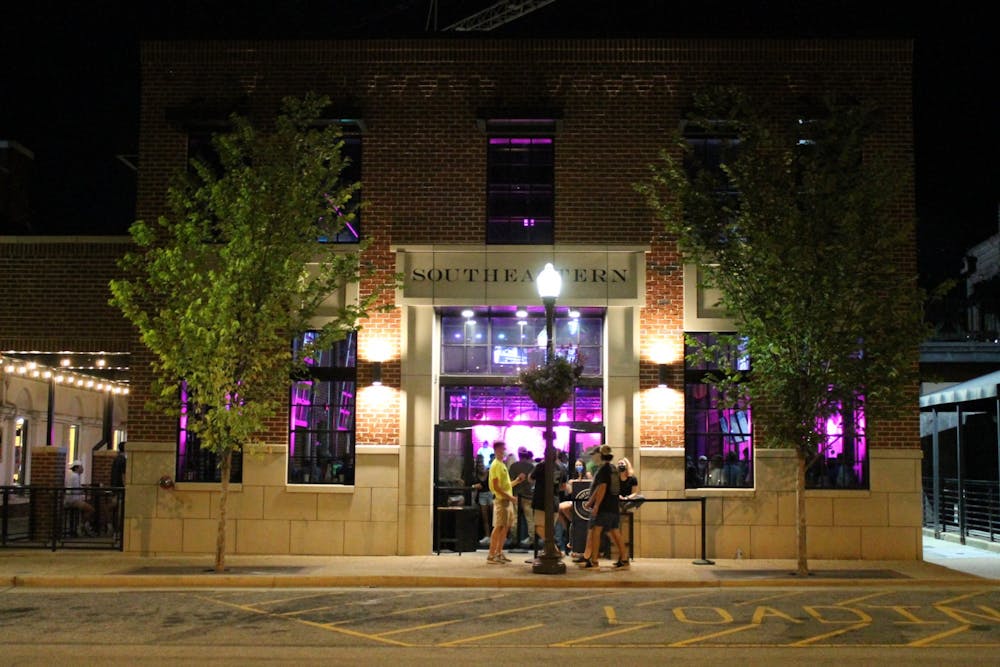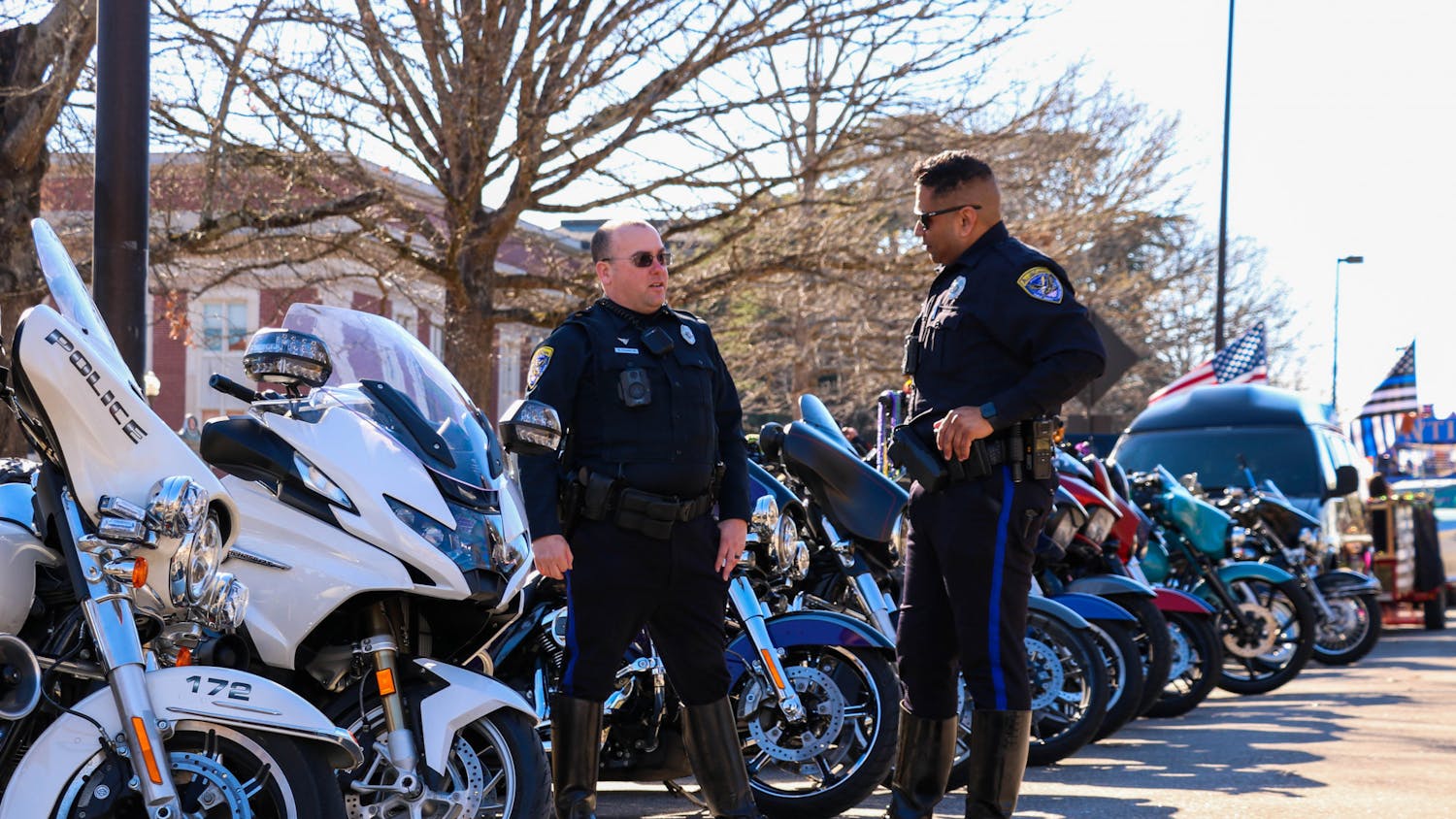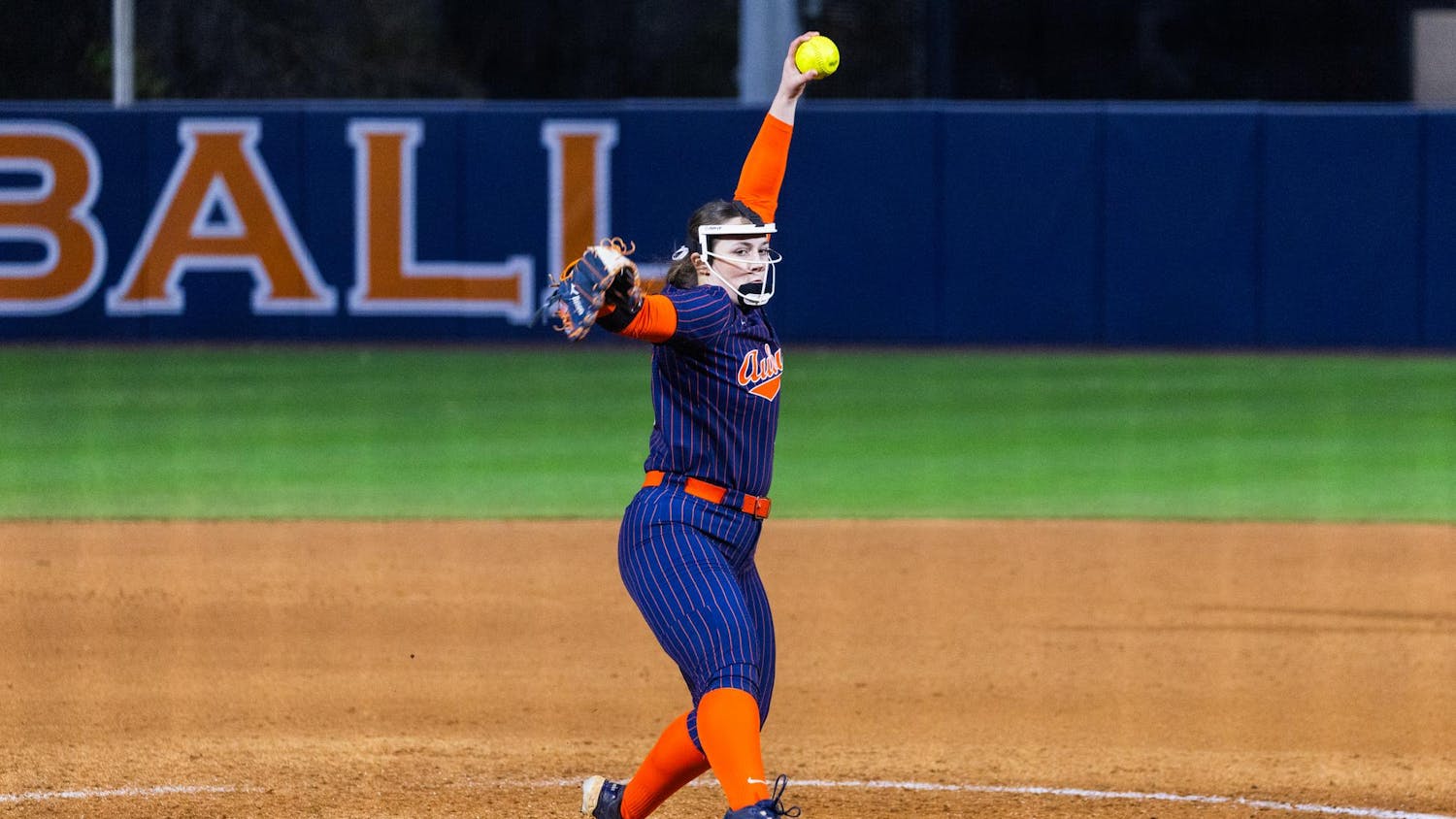To get into Skybar Cafe, patrons must be masked and have their temperature taken. Once inside, though, the masks often come off.
As fall classes have begun, large crowds have returned to some of Auburn’s downtown bars and clubs where there is little done to enforce social distancing or mask-wearing once inside, despite a statewide Safer at Home Order and concern over further spread of COVID-19. Over 200 Auburn University students tested positive for COVID-19 during the first week of class according to data from the University. Lee County saw an increase in cases of COVID-19 on Aug. 18 and 19.
Business was slow at Skybar this summer. Owner Pat Grider said that his business has been operating at about one-third of the normal revenue it normally brings in. A return of students to his bar is, to some extent, a sight for sore eyes. But with large groups gathering in small spaces, the risk for the transmission of COVID-19 rises.
Grider said that he believed his business is following all statewide guidelines for bars set out by the State of Alabama’s Safer at Home Order.
“We make everybody have a mask to come in, we check their temperature, we clean constantly with cleaning the bars, countertops and the tables and then we follow the 11:00 [last call] mandate,” Grider said.
While these measures are all encouraged or required by the state, the activity inside the bar has at times gone against the state’s guidance.
A photo received by The Plainsman shows the inside of Skybar Cafe on the night of Saturday, Aug. 15, and the scene shows few COVID-19 precautions being taken. The dance floor is packed; nowhere in the photo is six feet of distance maintained; very few patrons are wearing a mask.
A gallery of photos received by The Plainsman showing downtown bars can be viewed here.
Elijah Blanchard, an Auburn University senior in supply chain management, visited Skybar that night.
“When I went to Skybar on Saturday, social distancing was basically impossible, and only a few people other than all the employees were wearing masks,” Blanchard said. “There were kids on the dance floor, and it basically looked like a normal weekend at Skybar.”
In response to the photo and reports of large crowds, Grider said a large crowd gathered for 30 minutes that night, which partly caught him by surprise. Grider also said he felt there is little he could do to enforce masks when most patrons are drinking.
“They do what they do. I make them wear a mask to come in, and then if they want to wear a mask the whole time and pull it down each time they take a sip, they can do that,” Grider said. “We’re not going to go up to somebody while they’re drinking.”
According to the state’s order, it is the individual’s, not the business’s, responsibility to make sure people wear a mask when in public, though businesses are encouraged to enforce mask-wearing among customers.
While patrons are not distancing in the photo of the inside of Skybar, Grider insists he has encouraged the practice.
“I’m encouraging [social distancing] all the time,” he said. “I have signs up, we encourage it, all the time.”
Section 19 of the Safer at Home Order requires bars, restaurants and nightclubs to maintain six feet of separation between all patrons when eating or playing games. The City of Auburn has interpreted, according to their website, that this also implies all other patrons need to maintain distancing, but Grider stated that this is an ambiguity.
Regardless, Grider did not express concern about the potential of widespread disease transmission within the bar, saying he believed Auburn has reached herd immunity.
No health experts have suggested that herd immunity has been achieved in Auburn.
“To be quite honest, I have not met a person in the last month that knows a person that’s had the COVID, and not one single employee has been under quarantine for the last month, so I have a very strong feeling that we already have herd immunity in our college students,” Grider said. “I don’t think college students are spreading it right now.”
The Plainsman has also received photos from students showing similar large crowds within Southeastern Bar on several nights. Social distancing is still not maintained in many of these photos and few patrons are wearing masks.
Grider also said the data from student tests, required for Auburn students to return to class, leads him to believe that students previously had the virus, contracting it at parties over the summer.
The state’s Safer at Home Order will expire at the end of August.
Weekly statistics from the University show that 202 students and five employees tested positive for COVID-19 in the first week of classes. Thirty-two Auburn students tested positive for COVID-19 in the period from Aug. 8–14.
On Aug. 18 — just over two weeks since Auburn students began to move into their dorms — Lee County recorded 82 new COVID-19 cases, the most cases in a single day throughout the pandemic, and 27 new positive cases were added on Aug. 19 — 3.5 cases more than the current 7-day average. After Aug. 19, numbers have trended downward.
Auburn Police Division also announced on Aug. 18 that the division will be “taking a more proactive approach” to enforcing the Safer at Home Order by issuing fines and citations.
The position that Auburn finds itself in is not unique. The University of North Carolina recently announced it will be transitioning to entirely remote instruction for undergraduate students, following a mere one week period on campus.
Quarantine housing, which Auburn University also has, quickly filled up at UNC until there were only four rooms left.
UNC similarly had a low positive test rate before returning to campus. According to reporting by The Daily Tarheel, in-person instruction, gatherings and parties soon led to a large increase in cases of COVID-19 that prompted the university’s decision to go online.
Do you like this story? The Plainsman doesn't accept money from tuition or student fees, and we don't charge a subscription fee. But you can donate to support The Plainsman.

Evan Mealins, senior in philosophy and economics, is the editor-in-chief of The Auburn Plainsman.





